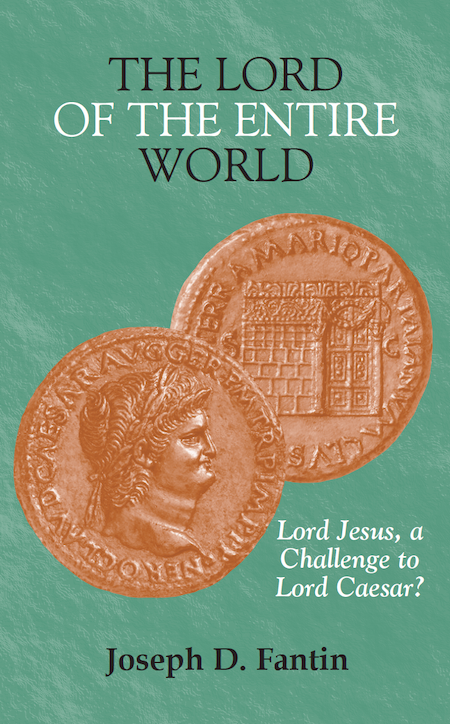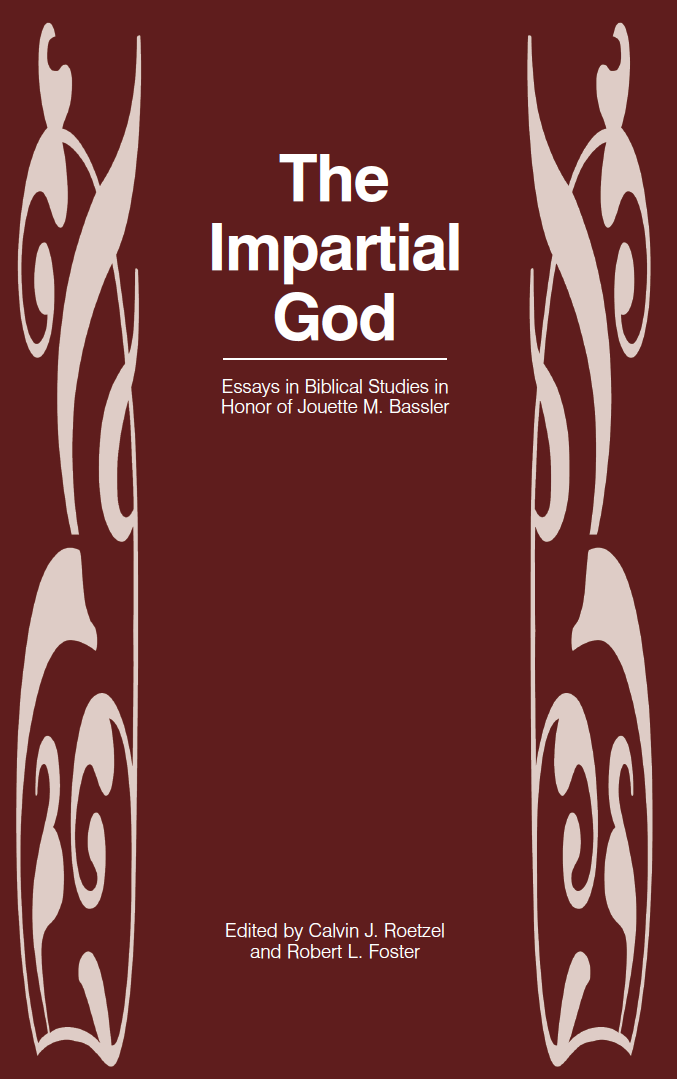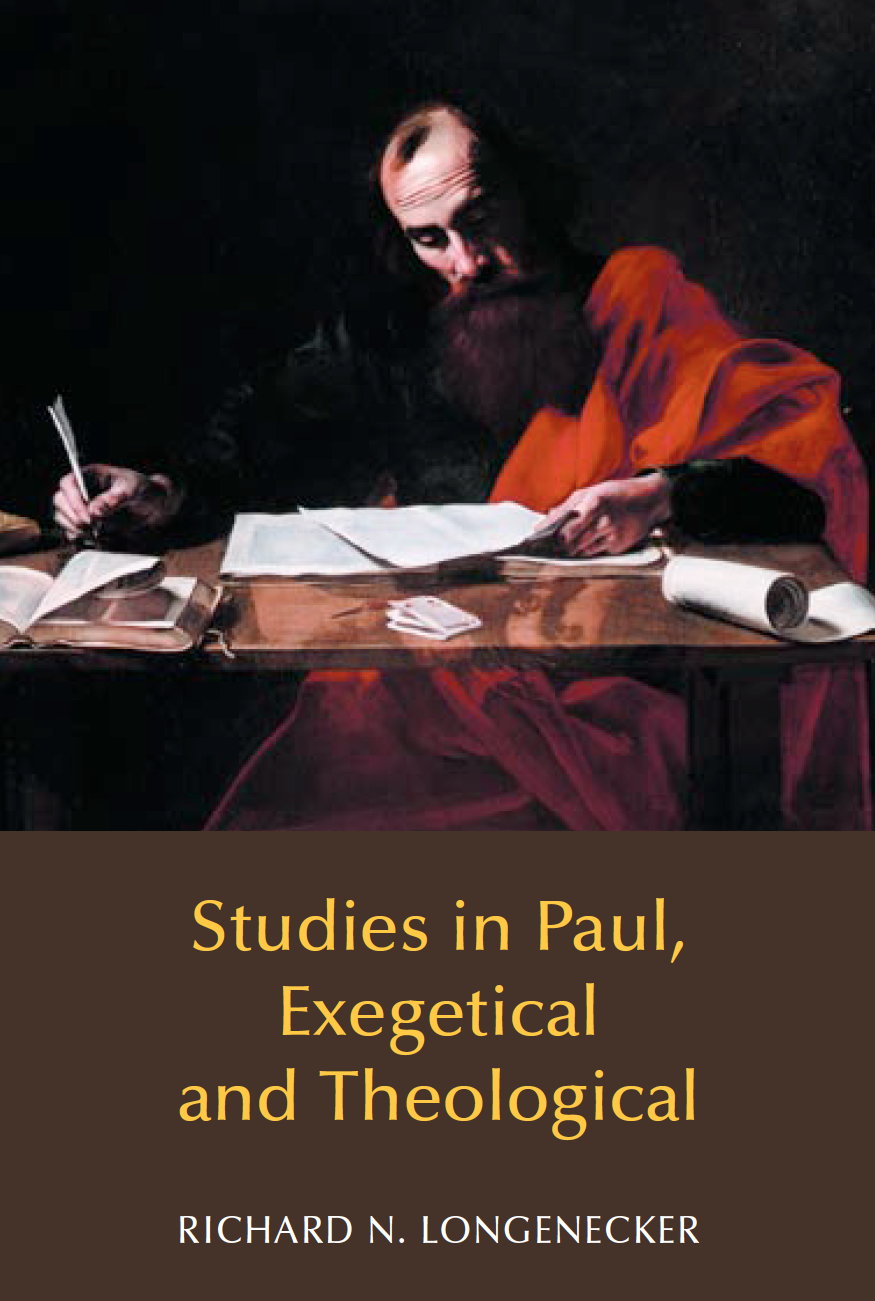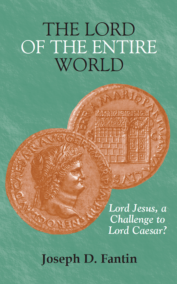The Letter to the Romans: A Linguistic and Literary Commentary
Published: Oct 2015
Price range: £19.50 through £50.00
This substantial new commentary, expounding the letter paragraph by paragraph, is distinctive among commentaries on Romans in foregrounding a linguistic and literary approach. To comprehend the letter, Porter shows, we must always be aware of the letter-writing and linguistically based rhetorical conventions its author was deploying.
The commentary is organized around the five-part epistolary structure that Paul developed for this fundamental letter, a structure that gives shape to its logically unfolding theological argument. Recognizing this structure is vital for interpreting the traditional sections of the body of the letter, as well as for understanding the placement of the problematic chapters 9 —11 within Paul's thought.
One of the primary means of development Paul uses within the letter is dialogical interaction —what the ancients called diatribe —as a linguistic device for shaping and presenting his argument. Through the insistent questions and responses of the interaction, Paul opens up the major theological issues of the letter —human depravity, sin and works, justification and righteousness, reconciliation, life in the Spirit, and the role of Israel —and shapes the way his addressees should respond to them.
The Letter to the Romans: A Linguistic and Literary Commentary
Price range: £19.50 through £50.00
This substantial new commentary, expounding the letter paragraph by paragraph, is distinctive among commentaries on Romans in foregrounding a linguistic and literary approach. To comprehend the letter, Porter shows, we must always be aware of the letter-writing and linguistically based rhetorical conventions its author was deploying.
The commentary is organized around the five-part epistolary structure that Paul developed for this fundamental letter, a structure that gives shape to its logically unfolding theological argument. Recognizing this structure is vital for interpreting the traditional sections of the body of the letter, as well as for understanding the placement of the problematic chapters 9 —11 within Paul's thought.
One of the primary means of development Paul uses within the letter is dialogical interaction —what the ancients called diatribe —as a linguistic device for shaping and presenting his argument. Through the insistent questions and responses of the interaction, Paul opens up the major theological issues of the letter —human depravity, sin and works, justification and righteousness, reconciliation, life in the Spirit, and the role of Israel —and shapes the way his addressees should respond to them.
The Letter to the Romans: Salvation as Justice and the Deconstruction of Law
Published: Sep 2011
£70.00
Romans, says Waetjen, is the first publication of the Christ movement. To understand it well is therefore a task of monumental importance, and to understand it today requires a postmodern hermeneutics, in which the interpreter's subjective experience of reading the text is correlated with historical-critical knowledge and social-scientific criticism. That hermeneutics has to create a new genre of commentary, making room for readers' prior understandings as well as for a dynamic form of close reading and consistency building. The outcome is a contemporizing of Paul's theology that induces conversation with Derrida, Žižek, Badiou and Agamben and others.
The central theme of Romans is, according to Waetjen, the healing of humanity through the realization of 'the justice of God', which is disclosed in the movement 'out of trust into trust', or, more specifically, out of the trust of Abraham into the trust of Jesus Christ. Living on this side of the law of Sinai and therefore being conscious of the condition of sin requires the reconciliation of Christ's death and the justification of Christ's resurrection in order to participate in the New Humanity of life-giving spirits.
Consequently Romans is more than a rhetorical effort to mediate conflicts between Jewish and Gentile believers in Rome. Composed prior to his journey to Jerusalem with the possibility of martyrdom before him, the letter is Paul's major theological testament.
The Letter to the Romans: Salvation as Justice and the Deconstruction of Law
£70.00
Romans, says Waetjen, is the first publication of the Christ movement. To understand it well is therefore a task of monumental importance, and to understand it today requires a postmodern hermeneutics, in which the interpreter's subjective experience of reading the text is correlated with historical-critical knowledge and social-scientific criticism. That hermeneutics has to create a new genre of commentary, making room for readers' prior understandings as well as for a dynamic form of close reading and consistency building. The outcome is a contemporizing of Paul's theology that induces conversation with Derrida, Žižek, Badiou and Agamben and others.
The central theme of Romans is, according to Waetjen, the healing of humanity through the realization of 'the justice of God', which is disclosed in the movement 'out of trust into trust', or, more specifically, out of the trust of Abraham into the trust of Jesus Christ. Living on this side of the law of Sinai and therefore being conscious of the condition of sin requires the reconciliation of Christ's death and the justification of Christ's resurrection in order to participate in the New Humanity of life-giving spirits.
Consequently Romans is more than a rhetorical effort to mediate conflicts between Jewish and Gentile believers in Rome. Composed prior to his journey to Jerusalem with the possibility of martyrdom before him, the letter is Paul's major theological testament.
The Lord of the Entire World: Lord Jesus, a Challenge to Lord Caesar?
Published: Aug 2011
£70.00
How would the confession, 'Jesus is Lord', have been understood in the first-century Roman world? Was it more than a statement of one's devotion to Jesus? Was it also an implicit challenge to the living Caesar, the lord of the Roman empire?
There were many lords in the first century and the use of the title kyrios was complex. Clearly Paul was influenced by the use of this title for Yahweh in the Greek Old Testament. But he was also part of a culture in which the title was used for many persons, including fathers, slave owners, government officials —and the emperor.
However, the title kyrios was used sparingly of emperors in the early and mid-first century. On the basis of the extant evidence, scholars since Deissmann have come to differing conclusions as to whether a challenge to the emperor is contained in the phrase.
Fantin proposes a more powerful method of resolving the question, drawing upon the insights of relevance theory. He examines a whole range of persons referred to with this title, and evaluates the potential influence of such contexts on Paul's usage. Only then is it possible to draw compelling conclusions on whether any challenge is likely to be implied.
In The Lord of the Entire World, Fantin shows that the living Caesar was indeed acknowledged in Paul's time as the supreme lord of the Roman world. Key New Testament texts such as Romans 10.9, 1 Corinthians 8.6 and Philippians 2.11 show that in all likelihood the Christian confession was in fact a challenge to imperial authority.
The Lord of the Entire World: Lord Jesus, a Challenge to Lord Caesar?
£70.00
How would the confession, 'Jesus is Lord', have been understood in the first-century Roman world? Was it more than a statement of one's devotion to Jesus? Was it also an implicit challenge to the living Caesar, the lord of the Roman empire?
There were many lords in the first century and the use of the title kyrios was complex. Clearly Paul was influenced by the use of this title for Yahweh in the Greek Old Testament. But he was also part of a culture in which the title was used for many persons, including fathers, slave owners, government officials —and the emperor.
However, the title kyrios was used sparingly of emperors in the early and mid-first century. On the basis of the extant evidence, scholars since Deissmann have come to differing conclusions as to whether a challenge to the emperor is contained in the phrase.
Fantin proposes a more powerful method of resolving the question, drawing upon the insights of relevance theory. He examines a whole range of persons referred to with this title, and evaluates the potential influence of such contexts on Paul's usage. Only then is it possible to draw compelling conclusions on whether any challenge is likely to be implied.
In The Lord of the Entire World, Fantin shows that the living Caesar was indeed acknowledged in Paul's time as the supreme lord of the Roman world. Key New Testament texts such as Romans 10.9, 1 Corinthians 8.6 and Philippians 2.11 show that in all likelihood the Christian confession was in fact a challenge to imperial authority.
The Impartial God: Essays in Biblical Studies in Honor of Jouette M. Bassler
Published: Oct 2007
£55.00
Jouette M. Bassler, Professor of New Testament at Perkins School of Theology at Southern Methodist University since 1986, is widely recognized for contributions to Pauline studies, the Pastoral Epistles, women in the New Testament, and for her work as editor of the Journal of Biblical Literature from 1995 to 1999.
The nineteen contributions to this Festschrift include: Charles Cousar on the Christ-hymn in Philippians, Gordon Fee on the locative en in Galatians, Benjamin Fiore on kinship address in Philemon, Robert Foster on the visions of grace in Ephesians, Serge Frolov on the 'Rebellious Tenants' story as political allegory, Victor Furnish on the theology of faith, love, and hope in 1 Thessalonians, Roy Heller on widows in Deuteronomy, Robert Jewett on wrath and violence in Romans and 1 Thessalonians, Elizabeth Johnson on first-century asceticism, Ila Bovee Kraft on the fictive interlocutor in 1 Corinthians 14, Steven Kraftchick on death in Philippians, Alan Mitchell on friendship in 1 Cor. 6:8, Richard Nelson on Achsah in Judges, Jerome Neyrey on characters in the Fourth Gospel, David Rensberger on the Holy Spirit in Pauline churches, Calvin Roetzel on violent metaphorical language in 2 Corinthians, E.P. Sanders on the providence of God in Josephus and Paul, Joseph Tyson on conflicting views of leadership in Acts, and Larry Yarbrough on concern for the poor of Jerusalem.
The Impartial God: Essays in Biblical Studies in Honor of Jouette M. Bassler
£55.00
Jouette M. Bassler, Professor of New Testament at Perkins School of Theology at Southern Methodist University since 1986, is widely recognized for contributions to Pauline studies, the Pastoral Epistles, women in the New Testament, and for her work as editor of the Journal of Biblical Literature from 1995 to 1999.
The nineteen contributions to this Festschrift include: Charles Cousar on the Christ-hymn in Philippians, Gordon Fee on the locative en in Galatians, Benjamin Fiore on kinship address in Philemon, Robert Foster on the visions of grace in Ephesians, Serge Frolov on the 'Rebellious Tenants' story as political allegory, Victor Furnish on the theology of faith, love, and hope in 1 Thessalonians, Roy Heller on widows in Deuteronomy, Robert Jewett on wrath and violence in Romans and 1 Thessalonians, Elizabeth Johnson on first-century asceticism, Ila Bovee Kraft on the fictive interlocutor in 1 Corinthians 14, Steven Kraftchick on death in Philippians, Alan Mitchell on friendship in 1 Cor. 6:8, Richard Nelson on Achsah in Judges, Jerome Neyrey on characters in the Fourth Gospel, David Rensberger on the Holy Spirit in Pauline churches, Calvin Roetzel on violent metaphorical language in 2 Corinthians, E.P. Sanders on the providence of God in Josephus and Paul, Joseph Tyson on conflicting views of leadership in Acts, and Larry Yarbrough on concern for the poor of Jerusalem.
Studies in Paul, Exegetical and Theological
Published: Jun 2006
Price range: £15.95 through £65.00
Masterly, balanced, concise, jargon-free essays on topics central to the theology of Paul, remaining closely in touch with the biblical text itself while always alert to the range of scholarly opinion and debate. These eleven articles from a recognized leader among New Testament scholars are an attractive entry-point for students into key aspects of Paul's thought, and are, equally, well worth revisiting by experienced scholars.
Two essays concern Paul's personal life, one of them on the impact of his conversion on his understanding of Jesus, the other on his experience of prayer. In the context of Galatians, Longenecker explores the idea of the 'pedagogue', and in the context of Romans the questions of its addressees and its purpose. Other themes are Paul's vision of community formation, his concept of mutuality, and the variability of his responses to opponents. In the last three essays, the focus is on Paul's theology of the resurrection —its basis, its background in Jewish thinking, and whether his thought on the subject underwent development.
Studies in Paul, Exegetical and Theological
Price range: £15.95 through £65.00
Masterly, balanced, concise, jargon-free essays on topics central to the theology of Paul, remaining closely in touch with the biblical text itself while always alert to the range of scholarly opinion and debate. These eleven articles from a recognized leader among New Testament scholars are an attractive entry-point for students into key aspects of Paul's thought, and are, equally, well worth revisiting by experienced scholars.
Two essays concern Paul's personal life, one of them on the impact of his conversion on his understanding of Jesus, the other on his experience of prayer. In the context of Galatians, Longenecker explores the idea of the 'pedagogue', and in the context of Romans the questions of its addressees and its purpose. Other themes are Paul's vision of community formation, his concept of mutuality, and the variability of his responses to opponents. In the last three essays, the focus is on Paul's theology of the resurrection —its basis, its background in Jewish thinking, and whether his thought on the subject underwent development.








The Letter to the Romans: Paul among the Ecologists
The Letter to the Romans: Paul among the Ecologists